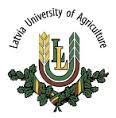Resource information
Having done research on agricultural decollectivization and its consequences since 1992, Ilkka Alanen and his colleagues has accumulated a wealth of knowledge on the coping strategies people adopted in order to survive in the Baltic countries and elsewhere (See Alanen 1998, Alanen et al 2001 and Alanen 2004a). The problems turned out to be much more difficult than the reforms planers anticipated, and that some of the initial failures still overshadow people’s lives. However, at the level of individuals, this information has remained far too general or scattered, because the focus of the work has, after all, been on enterprise and community structures. How different kinds of people coped with? What for example had exactly happened e.g. to the status classes of the former socialist large-scale farm? That is the question, to which we focus this paper. We claim, that both the success of the decollectivization in soviet farms, the development of the national economy and the local demand of labour explain the coping strategies and the success of the whole staff of former soviet farm (in this case of former kolkhoz). In addition to that also the position in specific class (as followers of certain status group in soviet farm) has impacted to their coping strategies. Those results refers to the possibility, that not only the education but also the networks of certain status groups originating from pre-decollectivization phase have had some effect in formation of specific coping strategies models. The analysis of early survey data (from 1994 and 1995) already indicated that the Estonian rural population derived most of its income from wage labour, while household plot farming predominated in Lithuania, with Latvia ranking between the other two countries but closer to Lithuania. Thus, decollectivization has directly resulted in the differentiation of the developmental models in the Baltic countryside. (Alanen 1998). Expanding the scope of the interviews from a case study of the decollectivization of a single Soviet farm in Estonia (cf. Alanen et al 'Decollectivization, Destruction and Disillusionment: A Community Study in Southern Estonia', 2001) to other farms and other countries showed that the destruction of large-scale production signified the widespread destruction of material (buildings, machinery, cattle) and immaterial resources (educational capital, skills), because only a small portion of these assets could realistically be transferred to family farms. Consequently, also work collectives disintegrated, and due to their central role this led to widespread alienation. The new local government agencies were powerless in the face of material destruction, communal anomie and lack of trust.



